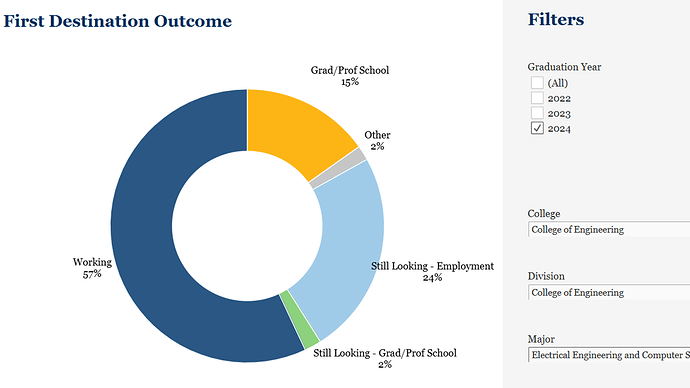Lehigh is a very good university. It is also a good “medium” size, or at least I like the size.
Lehigh is high enough ranked that I am not sure that there are many (if any) schools that both are significantly higher ranked and also are “likely” for any student (assuming that you do not have a Nobel Prize and that neither parent is the official head of state of a friendly country). Perhaps if a student was auto-admit for their desired major at UT Austin, or a similarly ranked school that has auto-admit, with in-state tuition, this might be a hard decision. I do not think that any student (again assuming no Nobel Prize …) is actually “likely” to get into MIT or Harvard or Stanford or Princeton or a few similarly highly ranked schools. You really can’t expect this to happen. Maybe an academically superb student who is also the top ranked quarterback in the country …(??).
STEM covers a lot of areas. There are some areas in STEM where a good job is quite likely after graduation. There are some areas in STEM where graduate school is relatively likely, which might imply additional expenses (assuming that a student can afford to attend graduate school). Even in areas where a graduate degree is not needed, sometimes a short one year master’s degree can be valuable, and is easier to pull off if you get your bachelor’s with no debt.
There are plenty of opportunities that a recent graduate might want to take advantage of that do not pay very well. That first job for a new university graduate might in some cases not be the highest paying job, but might still be a good start to a good career. There are some opportunities such as volunteering overseas that are easier to do if you have no debt.
And the economy four or more years into the future is an uncertainty. To me economic uncertainty is another reason to avoid debt. I understand that one possible outcome of an unsound economy might be high inflation, which could help offset the impact of debt, but to me it is just too risky to count on this. Perhaps the safest investment that exists in an uncertain economy may be a very good debt-free education with a pragmatic major.
It is hard to answer a hypothetical question without more information. However, I would tend to lean towards the debt-free bachelor’s degree from a very good university (which also is ABET accredited for some engineering disciplines, if that is the type of STEM that interests you).
By the way, I would not allow my children to take on any debt at all for their bachelor’s degree. One daughter was frustrated by this. She went to a very good school (probably ranked lower than Lehigh, but not necessarily for her major) that was a good fit for her and that also fit the budget. She then got a dream job that paid badly (they could pay badly because the job was that attractive). She could only take the job because she had no debt. This led directly to a second job, which helped to set her up for acceptance to a very good graduate program. She has since thanked me for not letting her take on debt. This worked out well.
A completely debt-free bachelor’s degree is a good plan if you can pull it off.
One more thing that might be worth saying. Avoiding debt for a bachelor’s degree is NOT something that I would look at as the parents being cheap. Rather, it is an example of the parents looking out for the child’s well being. It shows that the parents understand that debt is a risk, and that debt can represent the loss of some career related opportunities down the road. Sometimes we have to take risks in life, but when you have a very good debt-free option it is usually the right option to take. If the parents insist on their children graduating without debt, I would take this as an example of parents acting like parents who care about their children’s futures. This is not a case of being cheap. This is a case of being pragmatic and realistic.
And all of this assumes that Lehigh offers the student’s most likely major, or something close to the likely major, as an option.
